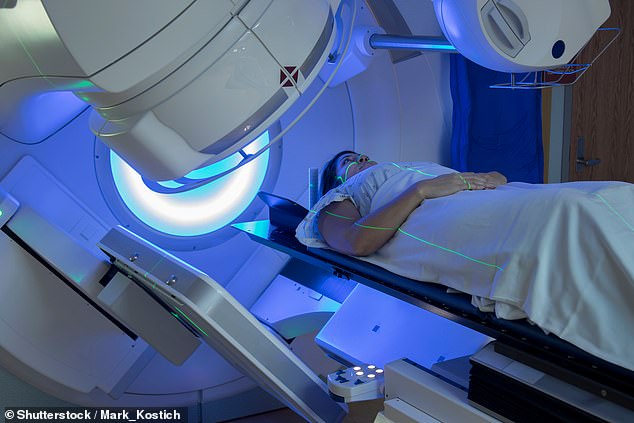Women who undergo a common breast cancer treatment may have a lower risk of developing Alzheimer’s disease, research suggests.
The neurodegenerative disorder – which affects memory, thinking and behaviour – impacts more than 900,000 people in the UK.
There is currently no cure and most cases of the condition are not linked to genetics.
But scientists in South Korea have found that breast cancer patients treated with radiotherapy were significantly less likely to go on to develop Alzheimer’s than women who hadn’t received the treatment.
Around one in seven women in the UK will be diagnosed with breast cancer during their lifetime.
More than 70 per cent will be treated with radiotherapy, which uses high-energy radiation to kill cancer cells and shrink tumours.
To investigate whether cancer treatment affects Alzheimer’s risk, researchers at Samsung University analysed health records of more than 250,000 women.
Around 70,000 were breast cancer survivors who had undergone surgery and treatment between 2010 and 2016.

Around one in seven women in the UK will be diagnosed with breast cancer during their lifetime (file image)

However researchers found that breast cancer patients treated with radiotherapy were significantly less likely to go on to develop Alzheimer’s than women who hadn’t received the treatment (file image)
They found those who received radiotherapy were 8 per cent less likely to develop Alzheimer’s than women who either hadn’t had the treatment or had never had breast cancer.
‘Based on these findings, we hypothesise that the risk of Alzheimer’s dementia could be lowered shortly after cancer treatment,’ said lead author Dr Su-Min Jeong.
However, he added that this apparent protective effect faded with time. ‘It may equalise as the survival period increases,’ he said.
Researchers believe radiotherapy may have anti-inflammatory or neuroprotective effects. It’s also been shown to reduce levels of two types of brain cells linked to inflammation in Alzheimer’s.
Other theories suggest radiation may interfere with the formation of amyloid plaques – abnormal protein clumps found in the brains of Alzheimer’s patients – or influence the immune system.











